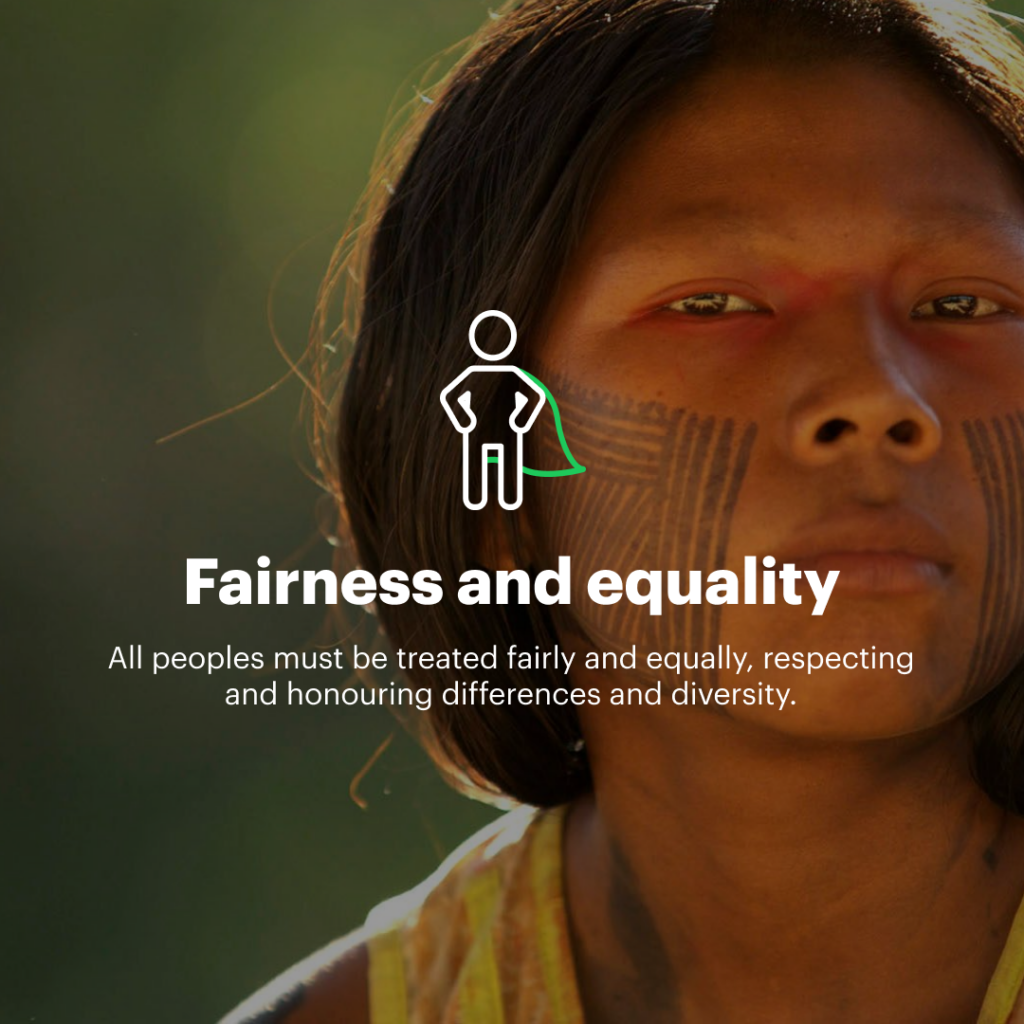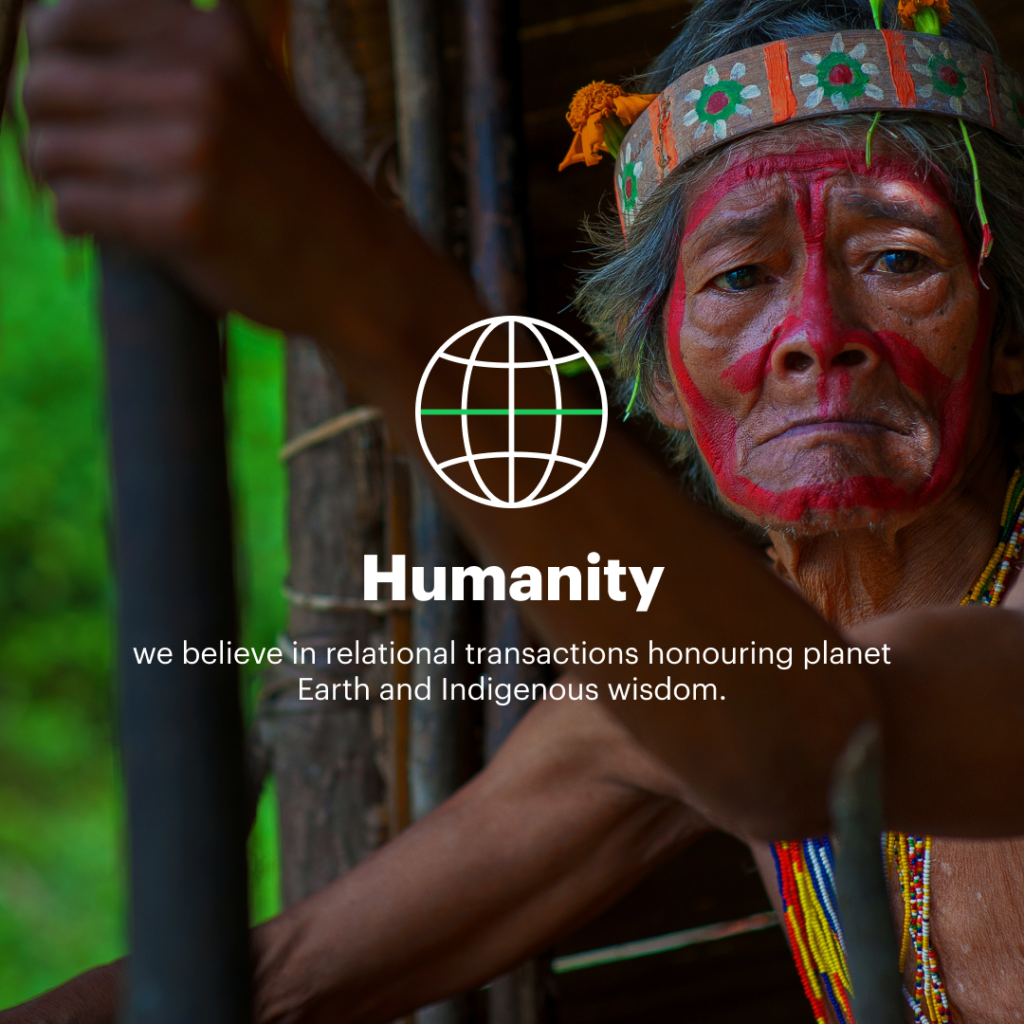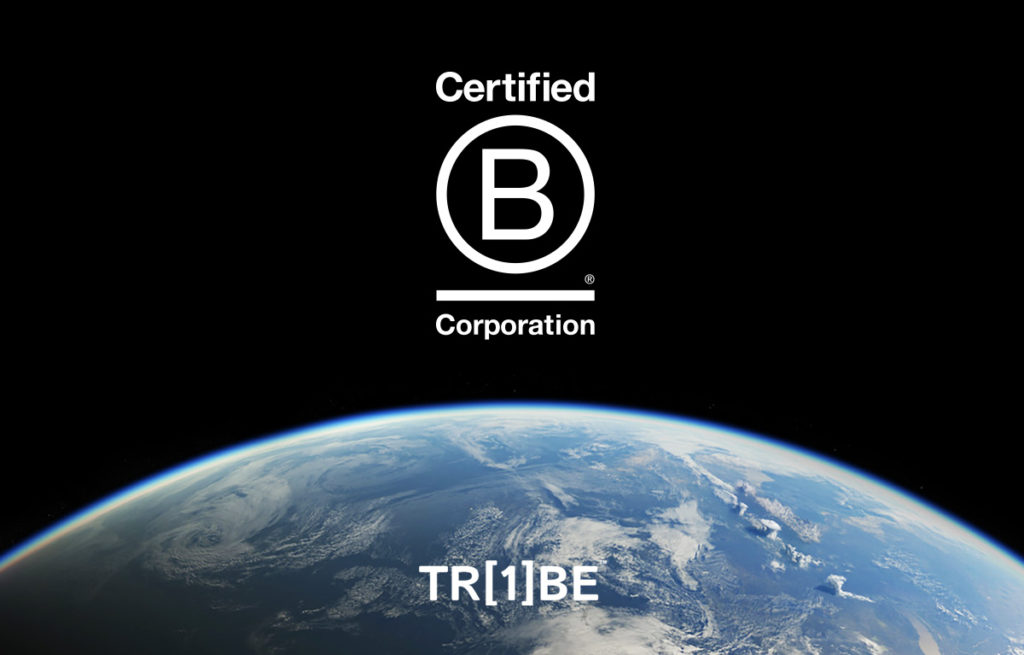
In March 2023 we will be celebrating B Corp’s annual event with a focus on the theme ‘BCorps Go Beyond’ (#WeGoBeyond). Celebrate with us and learn how One Tribe is working to build better business.

B Corp month is an annual event that takes place every year in March. It’s a time where B Lab and the extensive B Corp community join together to celebrate the qualities that make a B Corp who they are. Last year we celebrated #BehindTheB where we dove into the ‘behind the scenes’ of being a B Corp and how we work to build better business practices.
This year it’s all about understanding why and how B Corps go beyond ‘business as usual’.
2023’s B Corp campaign aims to break down the specifics behind what B Corp businesses are doing that separates them from the rest, as well as build awareness around how B Corps and the B Corp movement are transforming the economic system for the better.
B Corp is a prestigious reputation and once you certify the role of being a B Corp doesn’t end there. Year on year we continue to improve and develop our operations and business practices to achieve sustainable growth across all five governance areas that form the main B Corp criteria; Governance, Environment, Workers, Community and Customers.
For us being a B Corp means working together to build a community of businesses that operate for a greater good. We want to support businesses in taking meaningful climate action and work together to protect the planet and reduce carbon emission linked to business operations.
B Corps understand the importance of taking all people into account irrespective of whether their shareholders, board members, or part of the wider supply chain. At One Tribe our people are our biggest asset. It’s important that our workforce is aligned with our vision and values and reflect them in their day to day operations.
Right now we are continuing to contribute to the financial security of our workforce, and aim to enhance the wellbeing and career development paths of our teams so that they can feel confident in their roles and encouraged to thrive. Investing in employee training that helps our employees take ownership of their roles and feel confident in becoming accountable is important not only for our growth but for their personal development. At One Tribe we want everyone to feel supported in every aspect of their role. Putting these changes into effect is just one of the ways we are practising better business year on year and encouraging other businesses to do the same!

Tackling some of the world’s more complex issues is a big part of why One Tribe operates our business how we do. One Tribe’s impact led business model revolves around communities of people and businesses working together as One Tribe for a greater collective impact. The brands we work with, our projects, our partnerships and our employees all form part of a wider vision to protect our planet through connection and community.
In 2022 we met regularly with Indigenous leaders both in person and online to develop our values and collaborate on future projects aimed at community economic empowerment with the potential to gain carbon offset funds. By giving Indigenous and small scale land owners the tools and guidance to generate, manage and sell their own carbon offsets, underrepresented communities will be able to generate a continuous stream of income in return for the stewardship and management of their land.

One Tribe aims to create a positive impact that’s both measurable and meaningful for our brands, our partners and our wider community. We develop and support nature-based projects as a way to help businesses mitigate their carbon footprint and prevent global temperature rises and increased emissions from business operations.
The need to mitigate climate change and the role nature plays in doing so is critical in helping businesses to reduce their carbon footprint and achieve net zero. Offsets sourced from nature-based solutions could account for 37% of mitigation efforts needed to reduce carbon emissions while also opening up opportunities to help landowners regain stewardship of their land and finance their own solutions. In 2023 we aim to progress multiple carbon offset projects across the globe. Sourcing high grade nature-based solutions developed and governed by Indigenous Peoples worldwide.

We encourage everyone to join One Tribe this B Corp month and celebrate the efforts B Corp businesses are making to build better businesses and take responsibility for our planet.
B Corp businesses set the bar high when it comes to businesses authenticity, environmental approach, sustainability, and social wellbeing. As a business, it’s part of our responsibility to create awareness among the masses and drive awareness around the ways in which businesses can operate responsibly and sustainability.
At One Tribe we’re always open to talk about our B-Corp journey and how we can help brands to improve their carbon footprint.
b corps, b corp movement, global b corp community, b corps event, b corps together, what is the b corp movement, b corp certification, b corps 2023, one tribe b impact assessment, b corps environmental performance, b corp global network, b corp month 2023, what is b corp month, go beyond with b corps, b corp month theme, environmental impact, b corp global movement, certified b corporations, one tribe certified b corp, company’s positive impact,
One Tribe is a Climate Action Platform enabling businesses and their customers to make a positive environmental impact.
Eric currently works as an independent consultant at the intersection of nature and climate, focused on catalysing market and non-market solutions to drive the just transition.
He previously was Head of Product at Earthshot Labs, supporting nature conservation and restoration projects across the global south secure project finance. Prior to Earthshot Labs, Eric led nature-based carbon project development for Gorongosa National Park in Mozambique and founded the Carbon Cooperative, a global alliance of leading nature conservation and restoration practitioners exploring carbon finance. After serving in the Peace Corps in Mozambique out of university, he spent much of his 20s working in community-based conservation and ecosystem restoration efforts in Sub-Saharan Africa interspersed with two startup ventures as co-founder and CEO of a mental health tech startup and COO of a sustainable coffee company. Eric has a dual Masters in Environmental Engineering and Environmental Policy from Stanford University where he was a NSF Graduate Research Fellow and a BS in Environmental Engineering from Tufts University.
Alan is a risk management thought-leader, superconnector, and FinTech pioneer. His mission is to enable an Earth Positive economy which includes nature in global accounting systems.
Alan is Founder of Generation Blue, a venture studio dedicated to planetary game changers powered by exponential technologies. Previously, Alan established Natural Capital Markets at Lykke AG, pioneering blockchain based forestry and carbon backed tokens. Alan has over two decades of risk management experience advising global financial institutions, and was a founding member of the RiskMetrics Group, a JPMorgan spin-off. Alan is an investor and advisor to regenerative impact ventures, including TreeBuddy.Earth, Regenativ, and Vlinder Climate.
Lori Whitecalf made history when she became the first woman to be elected Chief of Sweetgrass First Nation in 2011. She served three terms of office from 2011-2017.
Lori took a two-year hiatus from leadership to expand the family ranch and serve as the FSIN Senior Industry Liaison. She was re-elected on November 29. 2019 and again on November 30, 2021, as Chief of Sweetgrass. Chief Whitecalf practises a traditional lifestyle of hunting, fishing and gathering. She currently sits on the following boards: Saskatchewan Indian Institute of Technology, FSIN Lands and Resource Commission, Battle River Treaty 6 Health Centre and Battleford Agency Tribal Chiefs Executive Council, FSIN Women’s Commission.
Tina is the Chief Business Officer for MLTC Industrial Investments, the Economic Development arm of the Meadow Lake Tribal Council. She has a diverse background of experience. Having spent 15 years as a municipal Chief Operating Officer, 20 years involved in Saskatchewan’s Health Authority Board Keewatin Yatthe and 9 years with Northern Lights Board of Education.
She continues as a Board Member with Beaver River Community Futures supporting small business development in her home region. Tina brings a wealth of experience in a variety of fields and many connections to the Indigenous communities of Northern Saskatchewan. In addition Tina holds a BA Advanced from the U of S, a Certificate in Local Government Authority from the U of R and is certified as a Professional Economic Developer for Saskatchewan and a certified Technician Aboriginal Economic Developer (TAED).
Tootoosis’ career spans 40+ years in HRM, political leadership, and Indigenous economic development, as a dedicated bridge builder and advocate for Indigenous causes.
As a key member of the Saskatoon Regional Economic Development Authority (SREDA) team since 2021, he develops strategies for the Truth and Reconciliation Commission final report and Call to Action #92.
He is a graduate of the First Nations University of Canada and a certified Professional Aboriginal Economic Developer. Spearheading various community initiatives while serving as a Chair of the SIEDN while directing ILDII and WIBF. Founder of MGT Consulting Tootoosis is based in Saskatoon, Treaty Six Territory.
Cy Standing (Wakanya Najin in Dakota) has a long and distinguished career including serving overseas as an Electronics Technician in the Royal Canadian Air Force, former Chief of Wahpeton Dakota Nation, former Vice Chief of the Federation of Saskatchewan Indigenous Nations (FSIN), past Executive Director of Community Development Branch of the Department of Northern Saskatchewan as well as an Order in Council appointment to the Federal Parole Board.
Mr. Standing has served as a Director on many Profit and Non-Profit Corporate Boards, including serving as a Director for Affinity Credit Union with assets of over six billion dollars as well as IMI Brokerage and Wanuskewin and is currently a member of the One Tribe Indigenous Carbon Board.